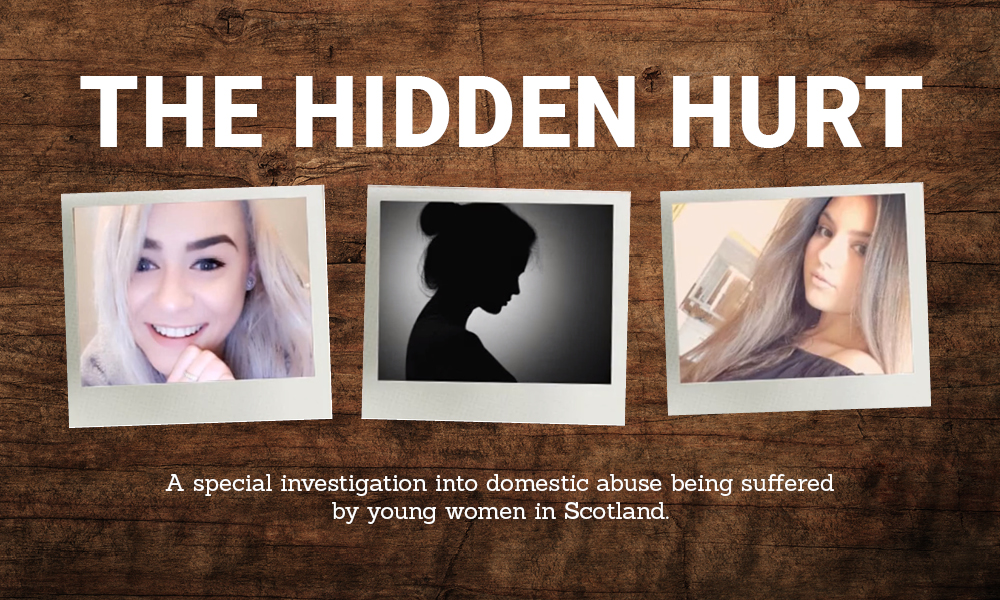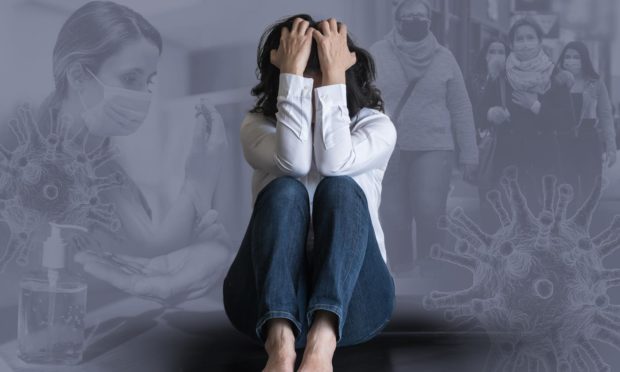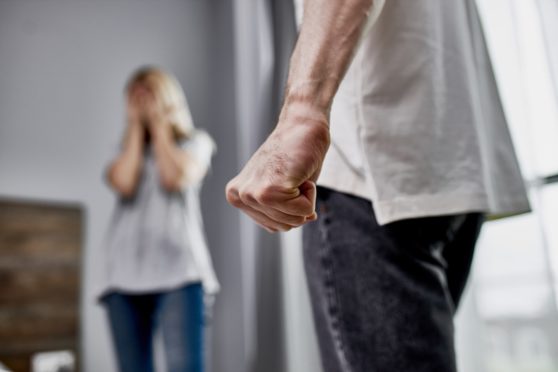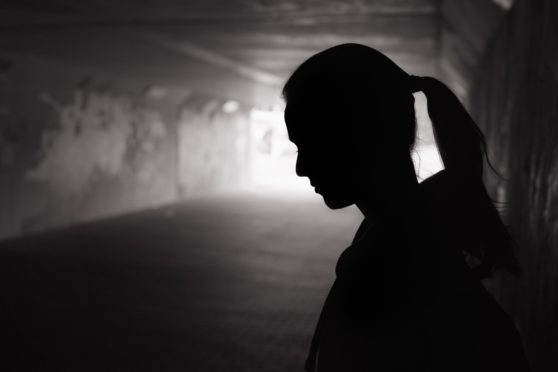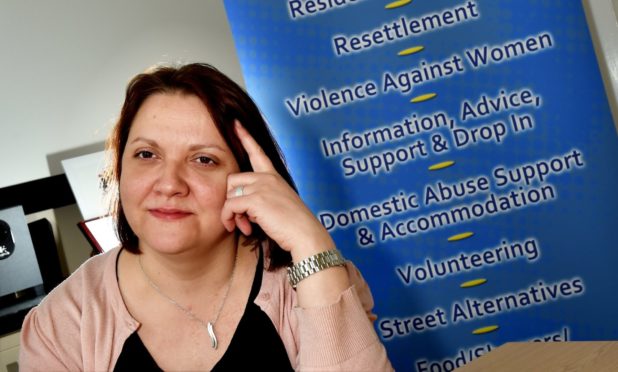Domestic abuse charities are struggling to cope with rising demand as the Covid-19 crisis has increased the risk to victims.
Heartbreakingly, some victims who had found the courage to leave their abuser found the opportunity snatched away when lockdown came into force last year.
The fallout from that situation is now impacting north-east domestic abuse charities and services, which have seen demand soar month-on-month as restrictions have eased.
The demand is so great, Grampian Women’s Aid is now operating a waiting list for agency referrals.
‘Options to reach out can be limited’
Aileen Forbes, manager of Grampian’s Women Aid, spoke of how the pandemic reduced opportunities for victims to take steps towards getting help.
She said: “We did notice at the start of lockdown things went quiet – due to women not having the opportunity to call to get support.
“When your partner or the perpetrator is living with you, options to reach out are extremely limited.
“Using our social media we got the message out – we are still here, you can contact us.
“When lockdown measures started to be eased it was virtually like a light switch, we noticed traffic increase. We were able to recognise that women now had the opportunity to reach out.”
She added: “If the perpetrator is away for a couple of hours women can make that call.
“From that moment we recognised the risk was higher. Those contacting us were in a much higher state of fear, a lot of women were in crisis.”
Aileen said for many the experience of being stuck inside with their abuser over lockdown changed their perception of the situation.
She said: “Before lockdown it was, ‘I’m not sure, can you help?’ In the later stages of summer, it was ‘I need to get out, I need to get out now.’
“To me, this was the awareness of domestic abuse. Because they were in lockdown and now exposed to anger at home they were able to see it more. They were exposed more so their level of tolerance and coping mechanisms that had served them well were not working.”
How the pandemic affected domestic abuse referrals
Pre-Covid GWA’s average new referrals per month were 55-60, but in the early stages of lockdown that fell.
- In March 2020 there were 29 referrals
- April – 32
- May was the start of a steady increase with 60 referrals
- June – 79
- July – 84
- August – 99
By September the charity saw a 100% increase in referrals compared to the previous year.
- September – 124
- Referrals fell in October to 78
- November saw 109 received
- This fell to 74 in December
And this year there has been an average referral rate of 88 per month.
‘We were put in lockdown … I had to stay’
Aileen added: “Demand for our support continues to be high and we unfortunately are operating a waiting list for all agency referrals at the moment as the service is at capacity.
“To us, more women are living in fear, more women are living in those circumstances. We are pleased they are reaching out, pleased they are reporting. If they are now reaching out, we can help them.”
For some, the opportunity to escape vanished when the pandemic started.
Speaking of her own experience one woman said: “It took a long time to find it in me to get help and, just as I decided I would do it, we were put in lockdown and I had to stay.
“When I got the courage again I was so scared we would be put in another lockdown, so that’s when I realised I had to do it now.”
Earlier this year it was revealed that domestic abuse trials in Grampian would be prioritised at Aberdeen Sheriff Court, with the vast majority to be conducted virtually.
Lockdown had resulted in a backlog of cases building up after trials were postponed.
Figures from the Scottish Courts and Tribunal Service show across the sheriffdom of Grampian, Highlands and Islands 20% of cases registered in 2019/20 were domestic. This compared to 23% in 2020/21.
While 29% of trials called in 2019/20 were domestic compared to 39% in 2020/21.
Domestic abuse can happen to anyone
Detective Inspector Karen Main spoke of how domestic abuse can happen to “anyone anywhere”.
She said: “Domestic abuse is a horrendous crime, which can have a long-term and devastating impact on individuals, families and particularly children.
“It can take the form of psychological, physical, sexual, emotional or economic abuse, and occur in a wide range of settings. Domestic abuse has no boundaries with regards to age, gender, wealth or status, location or ethnicity. In short, it can happen to anyone or anywhere.”
It comes after the latest quarterly figures from Police Scotland revealed 64,193 incidents were recorded by officers across the country between April 2020 and March 2021. This is an increase of 3.3% from the previous year.
The figures for the North East division showed 5,142 domestic abuse incidents recorded. This is an increase of 1.8% compared to the same period last year where there were 5,049.
DI Main said: “While the number of domestic-related crimes reported to the police in the north-east remains relatively steady compared to previous years, we recognise for some, the pandemic has potentially increased the shadow and risk of domestic abuse, cohesive behaviour and other harms which are often hidden from public view.
“The lockdowns have meant individuals may have been forced to stay at home in unsafe or abusive environments while help and support services may have been harder to reach and provide.”
Abusive behaviour continues online
DI Main called on anyone experiencing domestic abuse or controlling behaviour, or those who are concerned about others to contact police, support services, charities, Crimestoppers, or neighbours to ask for help.
She said: “We know some individuals have been moving into digital environments, using online platforms and new and emerging technologies to commit crime and continue their abusive, controlling behaviour and actions.
“We are continuing to adapt and proactively progress any concerns expressed. Irrespective of where the crimes occur, including in private, in the street, online or elsewhere.”
She added: “We are also very aware of the profound impact domestic abuse has on children’s wellbeing and development. The consequences of adverse childhood experiences, trauma and harmful experiences suffered can be long lasting and very damaging to their mental and physical health in childhood or adulthood.
“If anyone feels they are trapped, in dangerous situations, feeling isolated and at increased risk of domestic abuse I urge them to speak out.
“Domestic abuse should never be accepted or excused. Supporting and protecting often vulnerable individuals and families remains at the heart of our response throughout the pandemic and beyond.”
Support kept going through pandemic
Many support services are continuing to deliver support, guidance and help during the lockdown.
They have adopted measures to continue offering one-to-one support online and by phone when face-to-face contact can’t be undertaken.
Among the organisations providing vital support to those at risk is Aberdeen Cyrenians’ Ending Violence and Abuse Aberdeen (EVAA) service.
It helps those facing domestic abuse find safe accommodation.
Service manager Fiona Whitehouse said: “When we first went into lockdown everything just stopped. They were in that situation where they didn’t know if they could contact us or if our services would be available, so we did see it quieter then.
“For some, we are seeing things have exacerbated because they have been in that lockdown situation 24/7.”
She added: “Previously folk might have had opportunities to get some respite or seek support by being at work or dropping kids off at school, or having windows of opportunity. There’s been less of that.
“We have seen people looking for support who are often in situations that are higher risk. It’s got to that crisis point where they can’t continue to stay.”
‘It’s been challenging for people’
The challenges posed by the pandemic has meant the service has had to be flexible. Support has been provided remotely, by video call where possible, or phone most of the time.
Fiona said: “It has been really challenging for people coming to us. It’s about developing that rapport face-to-face. It’s much easier if you can see a face, get that body language and know exactly who you are speaking to.”
The number of people the service can support is also limited. Fiona says ideally each member of staff would be working with 12-15 people at a time. However, in the last year numbers have been “far in excess” of that.
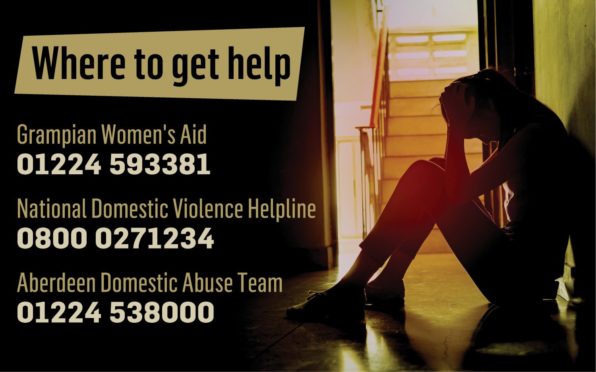
‘It’s not as immediate as we’d want’
Covid has presented challenges in terms of how staff communicate with those in need of support. It has also made it harder to build relationships in order to put measures in place.
Fiona said: “It’s not as immediate as we would want it to be, because everyone is remote working. It has put pressure on our service and the resources we have, as well as other domestic abuse services.
“We have had to look at how many people we can support at any one time, services may have waiting lists. Yes, we currently have funding to provide this, it’s just still not enough.
“We need to be able to build our service capacity. The main way of doing that is increased funding so we can increase staff support.”
Fiona said that follow-up support was just as important because risk can also increase when someone has left the relationship.
Some people, with extra measures in place, can stay in their own homes. But it’s not always an option.
“For a lot of people that’s never going to be a safe option, that perpetrator will know where they are,” said Fiona. “They will almost be a sitting target.
“There will be the memories and the trauma of the abuse that’s happened within that home.”
